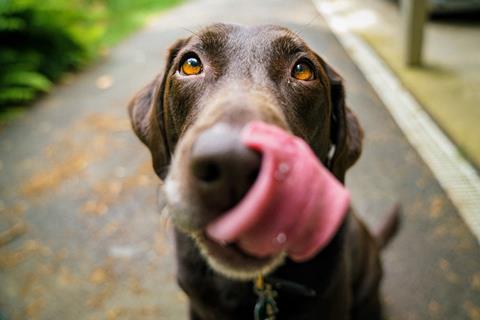
Forget Rover and Spot. The most popular dog names of 2021 were Luna and Teddy, according to online pet shop Yappy.com.
And there are a lot more Lunas and Teddys likely to be spotted on walkies – because 3.2 million households acquired a pet in the year after the first lockdown was announced, the Pet Food Manufacturers Association revealed in March. Of the 34 million pets in the UK, 12 million are dogs and 12 million are cats.
That’s good news for petfood suppliers, who in recent years faced a static pet population. Following the adoption boom, however, the category has grown by £82.8m.
“Branded players have seen this growth the most as shoppers continued buying brands they trust,” notes Oxana Roudenko, NielsenIQ senior analytics executive. “Treats for both cats and dogs continue to see growth, with brands like Dreamies (up 11.6%) and Good Boy (up 22.0%) seeing benefits of pet owners increasing occasions to treat their furry companions,” she adds.
Treats have been a big contributor to value, given they typically command significantly higher prices than everyday meals. Greater demand for premium lines with added health benefits, from brands such as Scrumbles, have particularly helped boost the category.
These added-value lines have masked relatively flat volumes in grocery overall. Unit sales are down 0.4% due to a return to pre-lockdown habits and the growing preference to shop online, benefiting DTC brands such as Tails.com.
Laura Shears, MD of Vet’s Kitchen, agrees that “e-commerce sales boomed as customers switched to buying both their own food and their pets’ food online”.
In this data, the brand suffered a 9.0% fall in volumes, with gaps in supply proving challenging. Amid a rebrand, “we were running with lower-than-normal stocks and unplanned spikes meant we had availability gaps” she adds.
Even petfood powerhouse Nestlé Purina – maker of Felix, Gourmet and the like – wasn’t immune to such difficulties. A spokeswoman for the company points to “turbulent fluctuations in demand due to shoppers increasing their purchase volumes during perceived supply shortages, which in turn caused limited availability on shelf”.
The supplier has also faced “significant and unprecedented challenges due to the rising costs of raw ingredients, packaging materials, transportation and energy” it told The Grocer in November.
In an effort to offset those costs, it has upped the cost of the majority of its petfood ranges – meaning Brits are set to pay even more. Average pack prices had already grown by 5% in this data period. Looks like Luna and Teddy are getting pricey.
Top Launch 2021
Lovebug | Mars Petcare
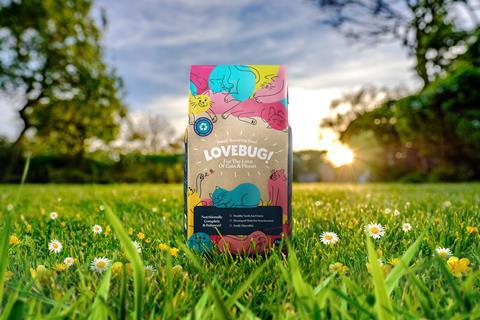
Mars Petcare made a seriously green move in March with Lovebug – the first 100% insect-based catfood to be added in the UK by a major supplier. Created with sustainability business Futerra, these dry kibbles are made from black soldier fly larvae. Lovebug promises to be “nutritionally complete” with a smaller environmental footprint than other petcare brands. That’s due in part to the insects being fed on surplus veg on a farm powered solely by renewable energy. Its packaging is fully recyclable, too.
The Grocer’s Top Products Survey 2021: who’s up, who’s down – and our overview of the key trends

Covid, Brexit costs and shortages in labour and material have caused chaos in grocery this year. Which sectors are best placed to deal with the inflationary storm on the horizon in 2022?
- 1
- 2
- 3
- 4
- 5
- 6
- 7
- 8
- 9
- 10
- 11
- 12
- 13
- 14
- 15
- 16
- 17
- 18
- 19
- 20
- 21
- 22
- 23
- 24
- 25
- 26
- 27
- 28
- 29
- 30
- 31
- 32
- 33
- 34
- 35
- 36
 Currently
reading
Currently
reading
Petcare 2021: pandemic pet boom drives treat sales
- 38
- 39
- 40
- 41
- 42
- 43
- 44
- 45
- 46
- 47
- 48
- 49








































































































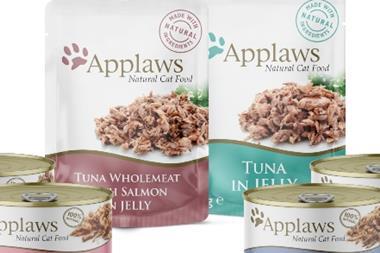
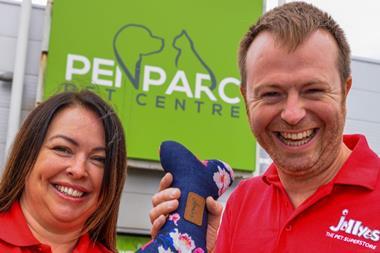
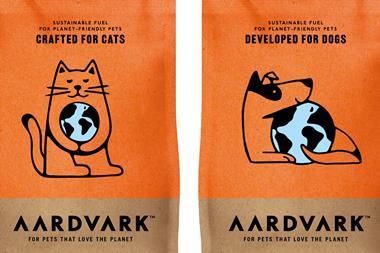
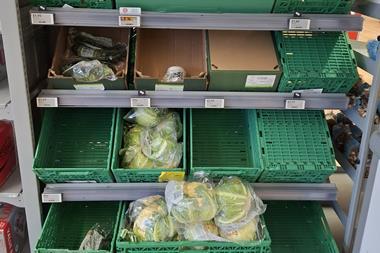








1 Readers' comment